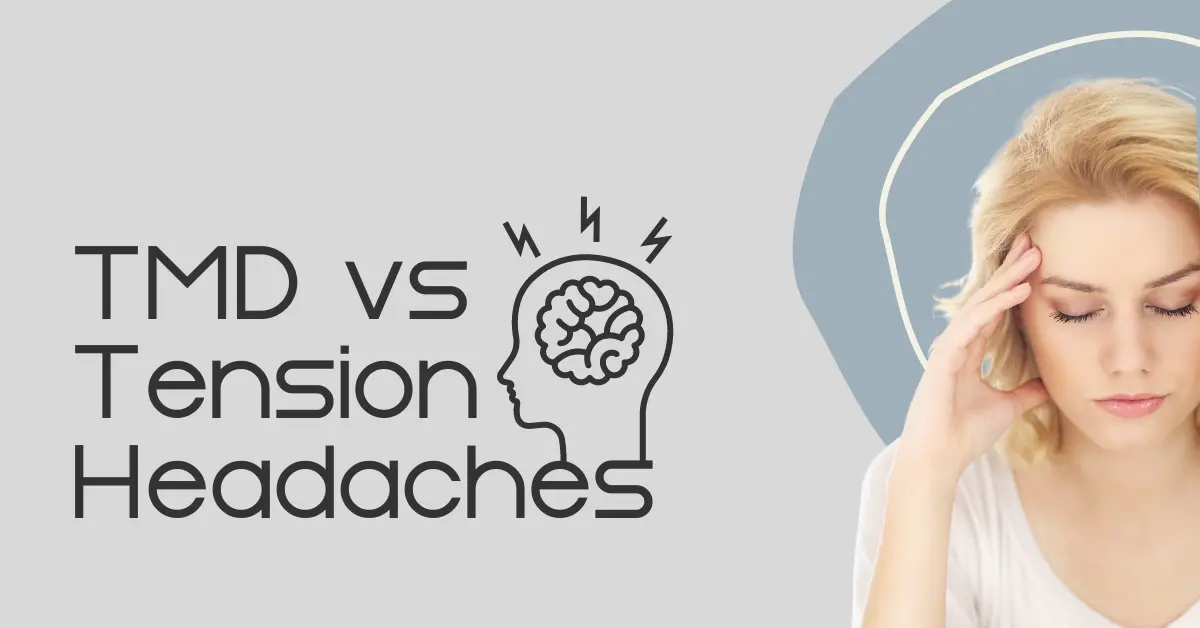
Did you know as many as 1 in 10 people claim to experience jaw pain? TMJ pain, which is pain related to the temporomandibular joint and surrounding muscles, can sometimes be hard to differentiate from other illnesses such as tension headaches or simply sinus pressure?
The main difference between tension headaches and TMJ headaches can be found in the cause of each. Tension headaches are commonly caused by the involuntary tightening of the muscles in the head and neck. TMD on the other hand, is caused by dysfunction in the temporomandibular joint (TMJ), ranging from dislocation and arthritis to jaw misalignment and inflammation.
Symptoms of TMJ headaches vary from typical tension headaches. Here are a few differences:
| TMJ Related Headache Symptoms | Tension Headache Symptoms |
|
|
Triggers for tension headaches and TMJ disorder (or TMD) can also be similar, but with TMD headaches, they typically involve some sort of injury or impact to the jaw. Below are triggers or causes for each type of headache. They’re pretty similar and can be even related. When under stress, a person can not only experience tension headaches, but this can lead to grinding of the teeth and clenching of the jaws, leading to worse pain in your temporomandibular joint.
TMD Headache Triggers
- Headaches related to the TMJ typically stem from overworking or injury to the jaw muscles. This may come from stress, leading to teeth grinding or clenching, or physical injury. Injury to TMJ may also come from certain degenerative diseases like osteoporosis.
Tension Headache Triggers
- Stress is the main culprit for tension headaches. Others include eye strain from screen time, lack of sleep, too much caffeine, as well as diet and illnesses
If headaches are related to TMJ disorder (TMD), sufferers will typically experience one or more of the following symptoms: ringing in the ear, popping or clicking of the jaw, ear pain, lock jaw, facial swelling near the jaw, or pain when moving the jaw (chewing, yawning, talking). If you are experiencing any of these symptoms, we recommend seeing an experienced neuromuscular dentist for proper diagnosis and treatment.
Jaw Related Headache Remedies
Tension headaches can typically be alleviated by an over-the-counter pain reliever such as Tylenol, and can be kept at bay by eating good, getting enough rest, and managing stress. TMJ related headaches can be temporarily improved by the same techniques as tension headaches, but sufferers will likely continue to have headaches until treatment is received for the temporomandibular joint (TMJ). Dr. Matt Bynum is a highly rated neuromuscular dentist and can help you find relief from your headaches by developing a specialized TMD treatment plan for you. Our practice serves patients in Simpsonville, Greenville, and the greater Upstate area. To schedule your neuromuscular dental exam, give us a call at 864.297.5585 or fill out our online appointment form.

